Life in China | Dominik Mayer – Products, Asia, Productivity
In 2008 and 2009 I spent 1.5 years studying Chinese at Tongji University in Shanghai. This is my way to China, these are my experiences in Shanghai.
I arrive in China on page 15.
Another Language
As if Chinese wasn’t enough, Ouwen and I decided to learn Korean. Last week a Korean friend has been at home and bought us the book “Korean made easy for beginners”. Looks very good.

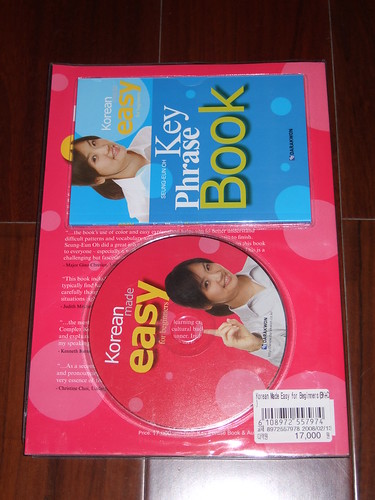
It’s good that they included a CD because I can’t find the free mp3s online. The book is for beginners which implies that they do not speak Korean. How are they supposed to understand the website.

Hangul: Fascinating. Not as hard as Hanzi but also not too easy.
Animal Oil
A friend said all the noodle people use animal oil because it’s cheaper. Aaaaaaarg. Bu hao. Hen bu hao. I will never be able to eat noodles again. We had just found a noodle woman a few weeks ago and last week I thought she used animal oil. Now I know…
NULL Encryption
No news from the lrz. They didn’t even bother to reply. Today I played around and checked “Allow using NULL encryption” in the configuration dialog. For the moment, VPN works. I hope it’ll last.
Network Cable
NULL encryption just worked once. With help of the lrz I’m about to narrow down the problem. Today I bought a new network cable and for now I can use VPN. In case it stops working again, I got three more points on my list. But I hope the best.
Finals
When I saw the final of the Euro 2004 in the Bierzelt of a small town in Bavaria, I would have never thought where I’d end up four years later…
Tomato and Egg
I stumbled upon this picture of a common dish around here (although I’ve never seen it with onions):
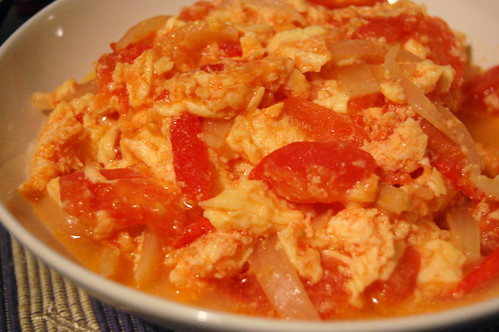
While I still don’t like the version they serve in the Tongji Cafeteria, I’ve eaten quite good ones in the meantime.
Su-Lin, the cook and photographer, posted the recipe in her blog. I haven’t tried it yet but you can do it. And if you want to enjoy the real Chinese experience just get tomatoes that are not yet ripe or contain black spots or holes and don’t cut them away. :-P
Bad Experience
With 호환 the Korean language has a special word for “disaster caused by tigers” or “ravages of tigers”.
Two Animals, a City and No End in Sight
Markenblog and China-Guide pointed out this funny video about Chinese using English names:
It’s really like that. I had the pleasure to meet some interestingly named people as well. Eagle, Success and a friend’s facebook friend is called Ente, German for Duck. And do you know Bayreuth?

Or this waitress at a café:
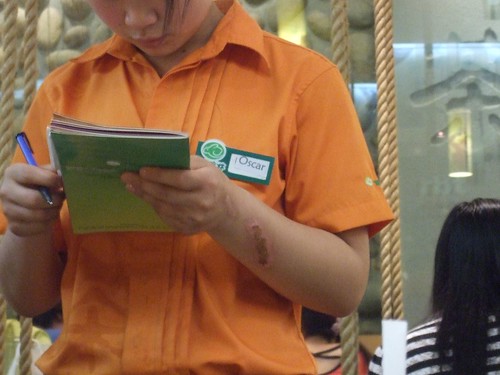
The Woman's Advice
Find a Chinese girl because the children will be more beautiful…
The Police Called
And asked the woman if I use the internet. At least that’s what I understood. Very strange.
English Maps, Chinese Maps, Beautiful Maps and No Maps
Google has been offering a Chinese map of Shanghai for quite some time. Not at maps.google.com but at ditu.google.com. Ditu, 地图, is the Chinese expression for map.
Now I stumbled upon a new, English one:
It doesn’t only show the public transportation but also restaurants, banks, cinemas, theaters, … Here an example of the area around Nanjing Lu:
But the most beautiful maps of Shanghai come from edushi (E都市, E-City):
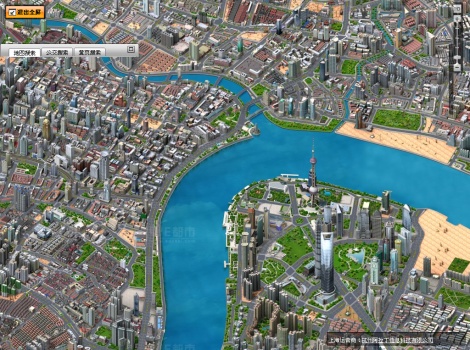
Bund, Pudong and Old City (lower left)
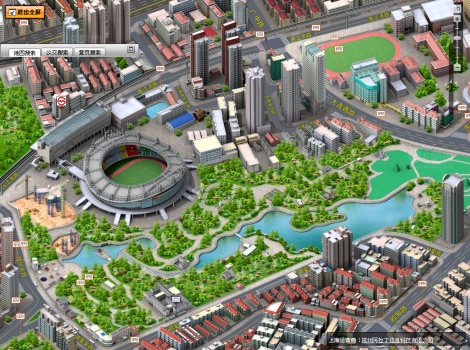
Hongkou Stadium and Lu Xun Park
They have already covered many Chinese Cities and seem to want more.
So why Yahoo, why, why, why don’t you make maps, buy maps or allow the use of one of the above mentioned ones in flickr?
OpenStreetMap for Beijing
Wow, that was fast. So they came up with a great fourth option. I hope Shanghai will be next.
Be Honest
Wikipedia knows:
The Ba rong ba chi (Eight Honors and Eight Shames) (Simplified Chinese: 八荣八耻 Traditional Chinese: 八榮八恥 Pinyin: bā róng bā chĭ), officially the Core Value System or the Eight Honors and Disgraces, is a set of moral concepts developed by current President Hu Jintao for the citizens in modern-day China.
Namely (emphasis added):
- Love the country; do it no harm.
- Serve the people; never betray them.
- Follow science; discard superstition.
- Be diligent; not indolent.
- Be united, help each other; make no gains at other’s expense.
- Be honest and trustworthy; do not sacrifice ethics for profit.
- Be disciplined and law-abiding; not chaotic and lawless.
- Live plainly, work hard; do not wallow in luxuries and pleasures.
So what does that mean? Obviously not that you should tell the truth. Faked fireworks, a faked singing girl and now 55 faked children. They were said to represent the different ethnic groups inside the country but in fact were all Han.
A Chinese friend suggests that the organizers might not have found beautiful children in the ethnic groups. Let’s check Wikipedia again (emphasis added):
Besides the majority Han Chinese, China recognizes 55 other “nationalities” or ethnic groups, numbering approximately 105 million persons, mostly concentrated in the northwest, north, northeast, south, and southwest but with some in central interior areas.
So no beautiful children in 105 million persons? I admit that it might not be the easiest task to find the 3000 Lhoba, the “smallest officially recognized ethnic group in China”. But then be honest and don’t call it:
Fifty-six children from 56 Chinese ethnic groups cluster around the Chinese national flag, representing the 56 ethnic groups.
R. Pausch
On May 18, 2008, Randy Pausch spoke to the graduates of Carnegie Mellon:
The professor, famous for his Last Lecture, died on July 25, 2008.
I Hate Chinese Internet
So VPN works now. Quelle surprise. Maybe because I’m using a neighbor’s Wi-Fi as our cable network gets disconnected every other minute. And I’ve read they’re going to censor more after the end of the Olympic Games. Great prospects. If I’ll be gone for the next four months, you know why.